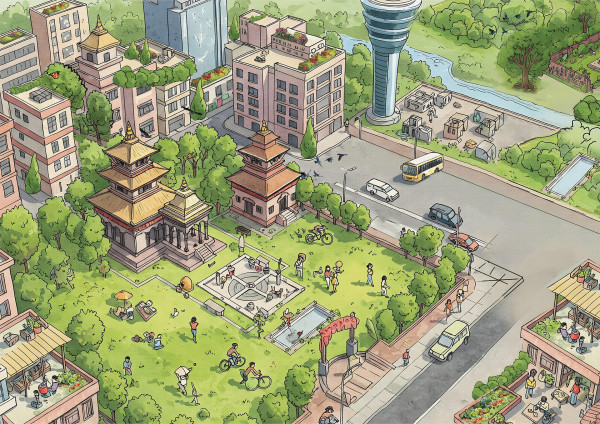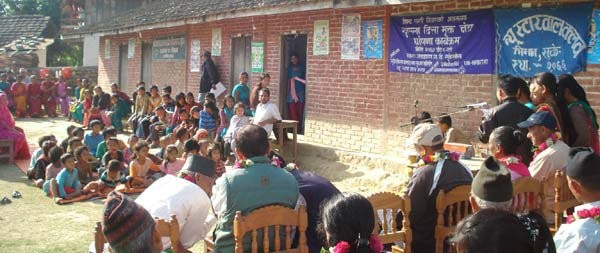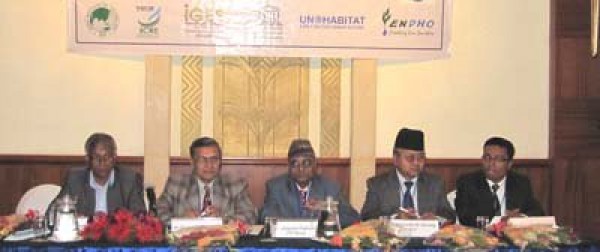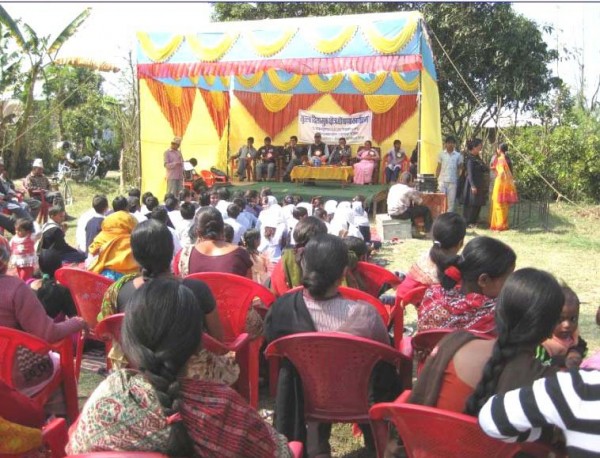UN Habitat: One-stop venue to enhance knowledge on Water
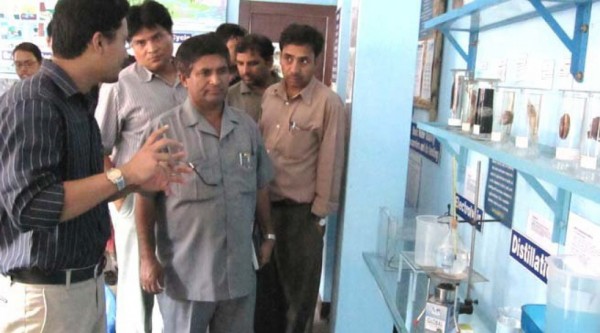
Ministry of Education (MoE), Government of Nepal, UN Habitat Water for Asian Cities Programme Nepal and Environment Camps for Conservation Awareness (ECCA) has established a Water Classroom at Shree Yashodhara Bauddha Secondary School. It aims to provide the students and other learners an opportunity to acquire and apply knowledge and understanding of water and sanitation from a one-stop venue. The water classroom was inaugurated on 4 July by the Under Secretary of Ministry of Education Bishnu Adhikari, who opined that the teachers and students need to be sensitized on social, economic, cultural and religious values of water for the effective implementation of human value based education system. Chief Technical Advisor of UN Habitat South Asia Region, Water for Asian Cities Programme Dr. Roshan Raj Shrestha believed that more human resources with expertise on human value based education should be produced and mobilized to enhance the understanding of student on the value of water, sanitation and hygiene in human life. Speaking at the inaugural programme, Yogendra Chitrakar, Director of ECCA told that the water classroom was developed under 'Human Value-based Water, Sanitation and Hygiene Education (HVWSHE)' programme to enable students to understand the value of water from social, cultural, religious, economic, natural and scientific aspects. According to him, HVWSHE is being implemented in 10 selected schools of Nepal for last two years to enhance awareness for HVWSE, build capacity to conduct HVWSE in the formal education sector, promote water and sanitation investments and implement HVWSHE in schools. He added that the water classroom comprises the models of watershed and ground water recharge system,water cycle board, hydraulic water turbine and 3-Dimensional landscape of natural water supply system of Lalitpur. Similarly, the walls of the classroom are covered with creative arts and informative posters of water related activities. A musical instrument has also been developed using water bowls to demonstrate the use of water. A water library has also been set up in the same venue by collecting books and publications related to water and sanitation issues. Apart from it, a rainwater harvesting and groundwater recharge system and a biosand filter has also been set up at the school premise. He also informed about another water classroom that is being established soon at Central Zoo. The visitors can collect information related to water from the computer placed in the classroom. The 'Water Hut', a model of watershed, has been constructed, from where the visitors can gain knowledge about the rainwater harvesting and groundwater recharge technology. Mr. Chitrakar also shared some information about the activities and achievements of HVWSHE programme. He informed that HVWSHE programme had already oriented different stakeholder particularly school teachers and government staffs on the importance and effectiveness of HVWSHE. He told that the programme is preparing to integrate HVWSHE in existing school curriculum without burdening the objectives and contents of the curriculum in the selected schools, which inspire and motivate children by imparting knowledge on water, sanitation and hygiene and support in developing a new water use ethics in the society.


